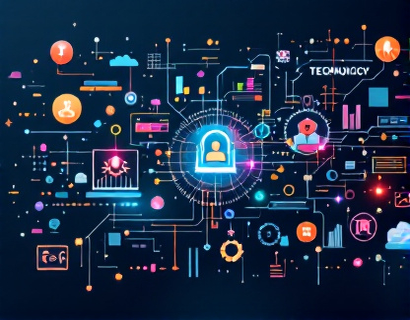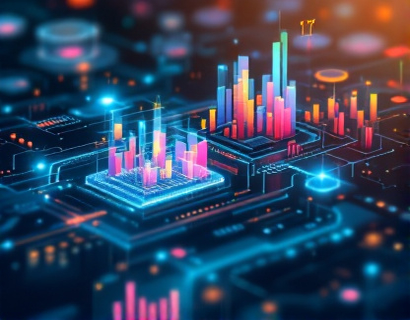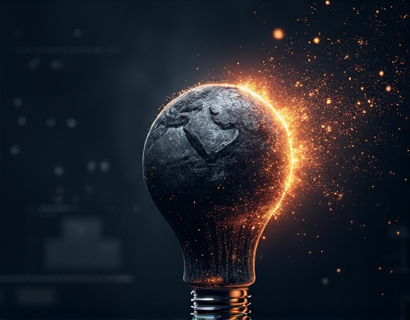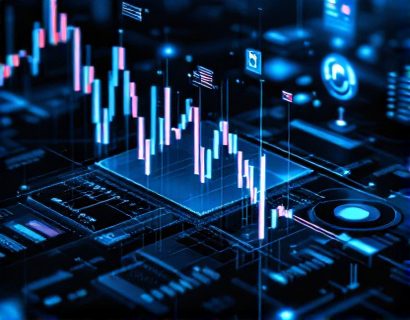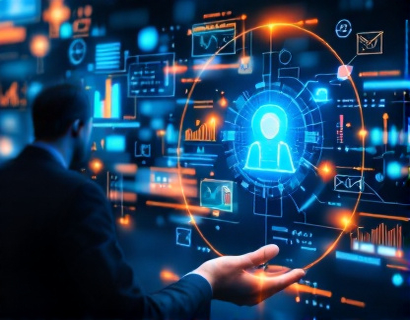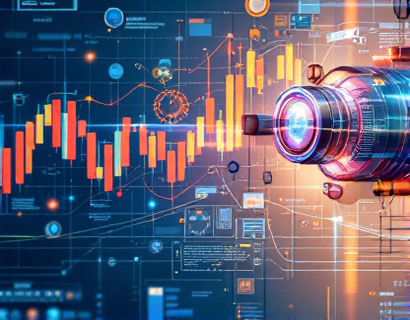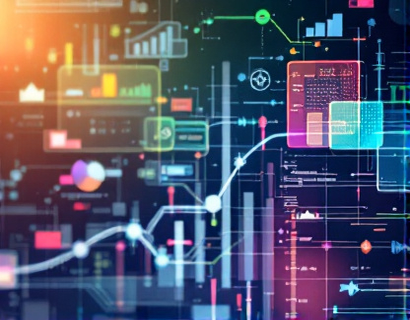Crypto and AI: Transforming App Ecosystems with Next-Gen Solutions
The intersection of cryptocurrency and artificial intelligence is giving rise to a new era of digital innovation, where traditional app ecosystems are being reimagined with cutting-edge technologies. This fusion is not just about integrating blockchain and AI but about creating a unified digital environment that enhances user experiences, ensures security, and fosters seamless connectivity. For tech enthusiasts and early adopters, understanding this transformative process is crucial, as it promises to redefine how we interact with digital solutions.
The foundation of this transformation lies in the unique properties of blockchain technology. Blockchain's decentralized nature, transparency, and immutability offer a robust framework for building trust and security in digital transactions. When combined with AI, which excels in pattern recognition, predictive analytics, and automation, the potential for innovation becomes immense. This article delves into how these technologies are being harnessed to create next-generation applications and services that are more efficient, secure, and user-friendly.
Enhancing Security with Crypto and AI
One of the most significant benefits of integrating cryptocurrency and AI is the enhancement of security measures in app ecosystems. Traditional apps often struggle with user data breaches and fraudulent activities, which can erode trust and hinder adoption. By leveraging blockchain, apps can ensure that user data is stored in a decentralized manner, reducing the risk of centralized points of failure. AI, on the other hand, can be employed to detect and prevent anomalies in real-time, providing a dynamic layer of security.
For instance, AI-driven algorithms can monitor transaction patterns and identify suspicious activities, triggering alerts and automated responses to mitigate risks. Smart contracts, a key feature of blockchain, can be programmed with AI logic to execute transactions only when predefined conditions are met, adding an extra layer of security. This combination not only protects user data but also ensures the integrity of the app ecosystem.
Improving User Experience through AI
AI plays a pivotal role in enhancing the user experience within app ecosystems. By analyzing vast amounts of user data, AI can provide personalized recommendations, streamline navigation, and offer intuitive interfaces. For example, AI-powered chatbots can handle customer support, providing instant responses and resolving issues efficiently. These chatbots can learn from user interactions, continuously improving their performance and adaptability.
Moreover, AI can optimize app performance by predicting user behavior and adjusting resources accordingly. This ensures that apps run smoothly, even under high load conditions, by dynamically allocating computational resources. The result is a more responsive and enjoyable user experience, which is crucial for retaining users and driving engagement.
Blockchain as a Platform for Decentralized Applications
Blockchain is not just a secure storage solution; it is also a platform for building decentralized applications (dApps). These dApps leverage blockchain's decentralized architecture to create applications that are resistant to censorship and control by any single entity. AI enhances this model by enabling dApps to function more intelligently and autonomously.
For instance, AI can be used to manage decentralized autonomous organizations (DAOs), where decision-making is distributed among token holders. AI algorithms can analyze data, propose actions, and facilitate voting processes, ensuring that the DAO operates efficiently and transparently. This synergy between blockchain and AI fosters a new paradigm of decentralized governance and collaboration.
Tokenization and Incentivization
Tokenization, a process enabled by blockchain, allows for the creation of digital tokens that represent assets, utilities, or rewards. When combined with AI, tokenization can be used to incentivize users and participants within app ecosystems. AI can analyze user behavior to design token reward systems that motivate desired actions, such as content creation, data sharing, or platform engagement.
These tokens can be used within the app ecosystem as a form of currency, enabling micro-transactions and fostering a vibrant economy. AI can also optimize the distribution of these tokens, ensuring that they are allocated fairly and effectively. This not only enhances user motivation but also creates a self-sustaining ecosystem where value is continuously generated and distributed.
Data Privacy and User Control
Data privacy is a growing concern in the digital age, and the combination of blockchain and AI offers solutions to enhance user control over personal data. Blockchain's decentralized nature ensures that user data is not stored in a single, vulnerable location. AI can further empower users by providing tools to manage and monetize their data.
For example, AI-driven platforms can allow users to selectively share their data with apps in exchange for tokens or other incentives. These platforms can also ensure that data usage complies with user preferences and privacy regulations. This approach not only protects user privacy but also creates a mutually beneficial relationship between users and app providers.
Scalability and Interoperability
As app ecosystems grow, scalability and interoperability become critical challenges. Blockchain and AI can address these issues by enabling seamless integration and communication between different systems. AI can optimize blockchain networks to handle increased transaction volumes, reducing latency and improving throughput. This ensures that app ecosystems can scale efficiently without compromising performance.
Interoperability is another area where blockchain and AI shine. AI can facilitate the development of cross-chain protocols, allowing different blockchain networks to communicate and exchange data seamlessly. This interoperability is essential for creating a unified digital ecosystem where users can interact with a wide range of apps and services without barriers.
Future Prospects and Challenges
The future of app ecosystems powered by blockchain and AI is promising, with numerous potential applications across various industries. From healthcare to finance, education to entertainment, the possibilities are vast. However, several challenges need to be addressed to fully realize this vision. These include regulatory hurdles, technical complexities, and the need for widespread adoption and understanding of these technologies.
Regulatory frameworks must evolve to accommodate the unique characteristics of blockchain and AI, ensuring that innovation is not stifled while protecting consumers. Technically, ongoing research and development are required to improve the efficiency and usability of these technologies. Education and awareness campaigns can help bridge the knowledge gap, encouraging more developers and businesses to embrace these transformative tools.
In conclusion, the fusion of cryptocurrency and AI is paving the way for a new generation of app ecosystems that are more secure, efficient, and user-centric. By leveraging the strengths of both technologies, we can create a digital landscape that is resilient, innovative, and inclusive. As tech enthusiasts and early adopters, staying informed and engaged with these developments is key to harnessing the full potential of this exciting frontier.




